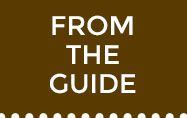Whatever happens in life, ego will come up with its something wrong, not enough conversation. The conversation with ego in conditioned mind keeps us believing there’s a problem and the problem is real.
Ego seems varied because content is immeasurable. But ego is not varied; its process is always the same. Worry is one of ego’s primary processes because what there is to worry about is infinite. It seems as if ego’s conversation is creative because it can come up with an endless list of “items/things” to worry about. But the process of ego worry is the same, repetitive, never changes.
Learning to recognize ego’s relationship with content (always has a solution of something to do) and learning to trust the Unconditional guides us to the real thing to “do”: end our relationship with ego. Ego invents the problem, lures us into a problem-solving conversation, and then tells us what to do to solve the problem—a solution designed to perpetuate the “there’s a problem to be solved” bamboozle.
Ego has us believe that we’re okay because everything is okay because ego is making us safe. When we realize that we’re okay because we’re okay, that we’re always vulnerable and yet we’re okay, we can relax into the being okay that comes with presence.
What ego offers will never work. We know that as Awareness Practitioners.
We “know” what to “do”: end the conversation with ego. But, ego keeps us in the conversation because as long as the attention is on it, it can talk us out of doing what will resolve the issue. Ego says we have to stay in the conversation, going around in the same circles because the answer will be found in going over the same ground one more time. And we believe it. Exiting the ego conversation is our first action step.
We know the answer, and we don’t act on it.
Change is hard, but suffering is harder!
In gasshō,
ch

